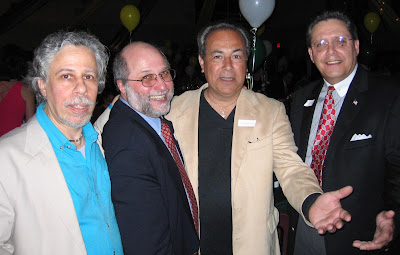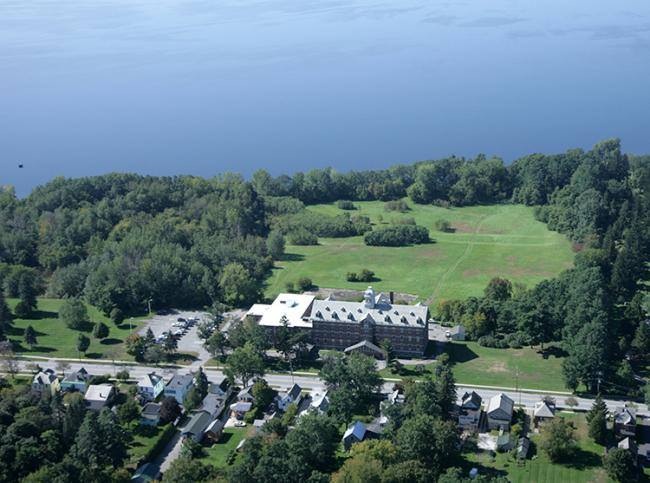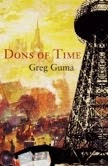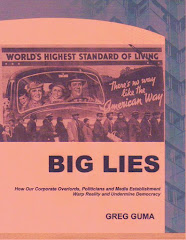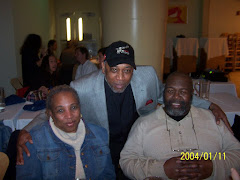In the next installment of Bill Lloyd’s reports from Africa in the late 1950s, he stepped aside for his daughter Robin to tell a story. She used the opportunity to write about an encounter in Southern Rhodesia
with Ian Civil, one of her former teachers at the International School in
Geneva.
 |
| Robin at a local protest |
Foul deeds were occurring, Robin reported. Hospitals were segregated,
even the ambulances. They would actually carry away some victims and leave
others behind. Civil had seen it himself: a European ambulance driving away when it saw
the color of the victims’ skin. One person left behind later died. Civil said some
Africans felt the situation was worse than South Africa.
A week after they spoke he was declared a “prohibited
immigrant” and deported. No reason was given.
* * *
Next stop, Tanzania, then the UN Trust Territory of Tanganyika. While
there Lloyd and company visited the African section of Dar as Salaan to call on
Julius Nyerere, president of the Tanganyika African National Union (TANU). They
talked about British attempts to ban the party before an upcoming vote.
The next morning, having just seen the city’s poverty, they
witnessed some pomp and glory out of the 19th century during a
celebration of Remembrance Day, which was something like the US Veterans’ Day.
Officialdom donned their white uniforms and gloves, attended church services,
and laid wreaths on two war memorials.
“To one with Quaker tendencies the sight
of church ushers wearing swords was a bit of a shock,” Bill wrote.
For a few days Robin and the younger Bill split off from their
father’s itinerary to visit the Friends African Mission in Kenya. Bill stayed
for a week and later wrote a story for TF.
He had visited the Mission hospital
and houses used for TB patients. Although African and European work campers
were cordial, he noted that they didn’t socialize much, in part due to language
barriers. Nevertheless, he considered it a rare opportunity for different races
to work together, one that could lead to better understanding.
* * *
In The Sudan the Lloyds met with Prime Minister Addallah Khalil,
who summed up the nation’s three years of independence this way: “We thought we could
take independence, but have found that we must build it.”
The meeting had been arranged by Education Minister Nasr Hag Ali,
who was a friend of Leon Despres, a Chicago alderman and member of TF's board.. Ali said the spirit of
independence was so pronounced among the country’s largely nomadic population
that the government found it difficult to implement regulations.
Bill asked whether reports of Communist influence were true. No, he
replied. “The communists are a very small and unimportant group.” On the other
hand, he also claimed that although an application had been made for US aid, no
“strings” would be accepted.
* * *
The family delegation’s last stop was Tunis. At the time President
Bourguiba was helping to mediate between France and Algerian rebels across the
border. The Tunisian government was also hosting about 300,000 refugees. The Lloyds
met with Bourguiba in his private residence near the ancient site of Carthage.
Bourguiba said the US was losing an opportunity by failing to
recognize France’s mistakes in Algeria. He made a comparison with South
Vietnam, where the US had backed President Diem over French objections, and
predicted that a Saudi Arabian proposal for a provisional Algerian government
on foreign soil wouldn’t satisfy the nationalists.
But he conceded that domination of the independence movement by
the military was also a problem. “Already they are antagonistic toward
intellectuals and civilians,” Bourguiba said, “and you just can’t tell what
will happen if things go on as they are now. The longer the war lasts the
greater the chance that anarchy will break out.”
Ten weeks after arriving in Africa the Lloyds started home on
December 7, 1957. “As we climbed into the clear sky, the beauty of the Gulf of
Tunis turned our minds to the possibility of returning sometime as simple
tourists with leisure to see the sights,” Lloyd wrote. “And then it was goodbye
to a continent that can truly be said to be in crisis – a word which the
Chinese very aptly consider a combination of danger and opportunity.”
On The Road Toward Freedom: A Cold War Story, part five of six.
On Monday: Deconstructions and Global Visions
REBEL NEWS, MARCH 29, 2013
Maverick Media’s Rebel News airs at 9 a.m. (more or less) on Fridays on
WOMM (105.9-FM/LP – The Radiator and live streaming) in Burlington. Here are
some highlights from this week’s round up.
EARTHQUAKE BLAMED ON FRACKING
Scientists
have linked Oklahoma’s biggest recorded earthquake to the disposal of wastewater
from oil production, more evidence of the need for greater regulation of
hydraulic fracturing for oil and gas. The 5.7-magnitude quake in 2011
followed an 11-fold bump in seismic activity across the central US in recent
years – just as disposal wells are created to handle increases in wastewater
from hydraulic fracturing, or fracking.
Researchers at the University of Oklahoma, Columbia University and the U.S. Geological Survey,
who published their findings this week in the journal Geology, said the results
point to the long-term risks the thousands of wells pose and shows a need for
better monitoring and government oversight.
The earthquake near Prague, Oklahoma, on Nov. 6, 2011, was the state’s biggest
and may be the largest linked to the injection of water from drilling process,
the researchers said. The state’s geological office disagreed, however, and argued it was likely “the result of natural causes.” The quake destroyed 14 homes,
damaged other buildings, injured two people and buckled pavement, according to
the report.
The rise in earthquakes in the central US is “almost certainly” man-made, and
may be connected with wastewater disposal, researchers
claim. For the three decades until 2000, seismic events in the region averaged 21 a year. They jumped to 50 in 2009, 87 in 2010 and 134 in
2011.
When
the State Department hired a contractor to produce the latest environmental
impact statement for the controversial Keystone XL pipeline, it asked for a
Web-based electronic docket to record public comments. Thousands are
expected from people and businesses eager to influence the outcome of the
intense international debate over the project.
But it won’t be easy to examine these documents. A summary of the
comments will be included in the final version of the environmental impact
statement, said a spokesman from the Office of Policy and
Public Outreach in State's Bureau of Oceans, Environment and Science. But
the only way to see the comments themselves is by filing a request under the
Freedom of Information Act (FOIA). The process could take so long that the debate could be over before the documents are available.
HALF OF RIVERS AND STREAMS POLLUTED
More than half
of the nation’s thousands of miles of rivers and streams have poor water
quality, including harmful nutrient pollution and mercury, according to the
U.S. Environmental Protection Agency. That was the key finding of the agency’s first
comprehensive examination of the health of U.S. waters.
Fifty-five percent of these waters were considered to be in “poor” condition
for aquatic life, while just 21 percent were considered “good.” The results
were based on samples collected randomly from nearly 2,000 rivers during the
summers of 2008 and 2009, the agency said.
Among the findings: More than a
quarter of rivers and streams are particularly prone to flooding, pollution and
erosion because of a dearth of vegetation cover… Nine percent of waters tested
positive for high bacteria levels, making them not fit for swimming….and fish
in more than 13,000 of miles of water carried high levels of mercury, a toxic
element particularly harmful to children and fetuses.
"MISSING HEAT" FOUND IN DEEP OCEANS
Contrary to the popular
contrarian myth, global warming has accelerated, with more overall global
warming in the past 15 years than the prior 15 years. According to a study in Geophysical Research Letters, this is because about 90%
of overall global warming goes into heating the oceans, and the oceans
have been warming dramatically. As suspected, much of the so-called "missing heat" has been found in the deep oceans. At least 30% of the ocean warming over the past decade has occurred in the deeper
oceans below 700 meters, unprecedented over at least the past half century.
Based on slowed global surface warming over the past decade, some research suggests that
the sensitivity of the climate to the greenhouse effect is lower than the best estimate. But those studies don’t
account for the warming of the deep oceans. Slowed surface air warming over the
past decade may have lulled people into a false and unwarranted sense of
security.
LESS WORK WOULD REDUCE CLIMATE IMPACTS
The
choice between fewer work hours and increased consumption has significant
implications for the rate of climate change. Studies say that
shorter work hours are associated with lower greenhouse gas emissions and
therefore less global climate change.
Reducing work hours over the rest
of the century by an annual average of 0.5 percent would eliminate about
one-quarter to half of the global warming that is not already locked in (meaning
the climate change that would be caused by 1990 levels of greenhouse gas
concentrations already in the atmosphere).
INCOME: 90% EARNING JUST $59 MORE THAN IN '66
Still more
statistics illuminate the spike in income inequality in the U.S. over recent
decades. The vast majority averaged a mere $59 more in 2011 than in 1966. For
the top 10 percent, by the same measures, average income rose by $116,071 to
$254,864, an increase of 84 percent over 1966.
VERMONT: SUPREMES DENY REQUEST TO CLOSE
NUKE
The
Vermont Supreme Court has denied a petition to shut down the Vermont Yankee
nuclear power plant. New England Coalition, an anti-nuclear group,
contended that Entergy Corp., the plant's owner, had violated the sales order
authorizing Entergy to buy the plant in 2002.
At issue was a clause concerning a 2012
deadline for a new state permit. The Vermont Public Service Board said Entergy
is in violation of the 2002 agreement and is taking more testimony before making
a final decision. In the meantime, however, the plant can continue to operate.
The Brattleboro Reformer reported
that in its decision on Monday the high court ruled that the anti-nuclear coalition
hasn't requested, nor has the board issued, an order directing Entergy to stop
operating the plant on the grounds advanced by the group.
Bottom Line:Thought the anti-nuke petition was dismissed, the Court invited opponents to pursue
more options and pointed to another pending case. Talk about mixed messages.
DRUG NEWS
A new
report documents that NYPD used approximately 1,000,000 hours of police
officer time to make 440,000 marijuana possession arrests over 11 years.
The report also estimates that the people arrested for marijuana possession
have spent five million hours in police custody over the last decade.
Numerous other reports have exposed the array of problems associated with
marijuana arrests in the city. New York has made more marijuana possession
arrests under Mayor Michael Bloomberg than under mayors Koch, Dinkins and
Giuliani combined. Nearly 70% of those arrested for marijuana are younger than 30 years old, and
over 50% are under 21. They end up with a permanent
criminal arrest record that can be accessed on the internet by employers,
banks, schools, landlords, and others.
Even though young whites use marijuana at higher rates, over 85% of the people
arrested and jailed for marijuana possession are black and Latino. All these arrests are costing New Yorkers more than $75 million per year.
Mayor Bloomberg recently announced administrative changes to how NYPD will
process marijuana arrests. But there won't be a change in the law itself. Advocates want Albany to act.
PRESIDENTS ON DRUGS?
Kentucky Senator Rand
Paul recently told Fox News that President Obama and former President
George W. Bush could have "conceivably been put in jail" for using
drugs. "Look, the last two presidents could have conceivably been put in jail for
their drug use and I really think - look what would've happened, it would've
ruined their lives,” Paul said. “They got lucky. But a lot of poor kids,
particularly in the inner city, don't get lucky and they don't have good attorneys and
they go to jail for some of these things and I think it's a big mistake."
The statement prompted host Chris Wallace to note, "Actually, I think it
would be the last three presidents, but who's counting?"











